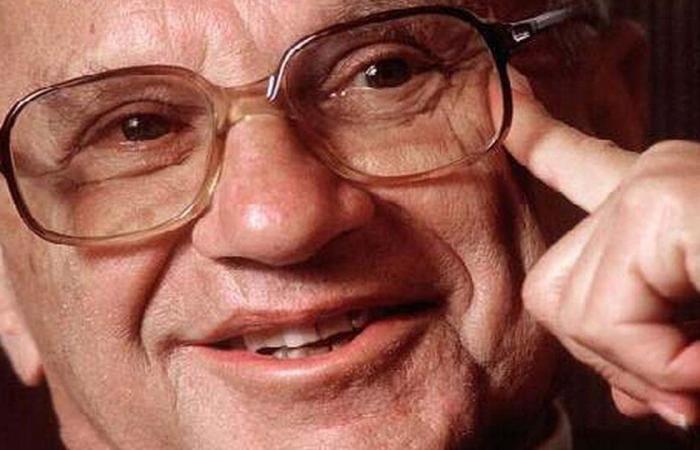
Created in 1895 by Alfred Nobel, the awards that bear his name distinguish productions from five disciplines: Literature, Medicine or Physiology, Chemistry and Physics; plus the award for actions in favor of peace. Both the Nobel Peace Prize and the Nobel Prize for Literature have been involved in controversy, either due to omissions or due to winners with debatable merits.
That level of controversy extended from 1969 to a sixth Nobel Prize, that of Economics.for which Javier Milei has just nominated himself, an economist who – through diffuse and unexpected reasons – became president of a South American country and with academic merits that perhaps made him worthy of a trip to Stockholm, according to his optimistic and excessive imagination.
Weeks ago, his Secretary of Tourism, the malleable Daniel Scioli, had said that “if this continues they will have to give him the Nobel Prize in Economics.”
Economics does not appear in Nobel’s will among the branches to be awarded. In fact, Nobel Not only did he not include it, but he also had a terrible opinion of the economy.. By the end of the 19th century, mathematics had more prestige, which could well have been considered, but was not.
“It is a public relations coup by economists to improve their reputation”said Peter Nobel, a descendant of the industrialist.
The whitewashing of Hayek and Friedman
How was the Nobel Prize in Economics created? He obeyed a lobbying issue that culminated in 1968 when the Bank of Sweden, which was turning 300 years old, He donated money to the Nobel Foundation to establish an award that even the industrialist’s own descendants criticize.. The truth is that every year, and with money from the Bank of Sweden, the Swedish Academy of Sciences chooses the winners. The official name is the Bank of Sweden Prize in Economic Sciences in Memory of Alfred Nobel.
The critics They point to neoliberal groups as promoters of a prize that could legitimize his speech. In fact, the bulk of the laureates are from that current (there are notable exceptions, such as Paul Samuelson, honored in 1970). The Mont Pelerin Society is attributed an important role after the end of the Second War, when Keynesian ideas were on the rise.. Led by Friedrich von Hayek (one of the priests of the marginal Austrian School), it despised any economic program with state participation. Several of its members were part of the Bank of Sweden and From there they promoted the lobby to create a prize that would be awarded to Hayek in 1974.
Admired by Margaret Thatcher and an admirer of Pinochet’s economy in Chile, Hayek shared the award with the Swede Gunnar Myrdal. When the Nobel Prize in Economics fell into controversy in 1976 when it was awarded to Milton Friedman, patriarch of the Chicago school and advisor to the Chilean dictatorship, doubts were raised about the prestige of the prize that Nobel did not bequeath. In fact, Friedman was scolded when receiving the award with slogans that recalled his role in Chile.
In that occasion, Myrdal publicly admitted that he should not have accepted the Nobel because he did not need the money. and because Economics is not a hard science like the other three that are awarded. In private, argued that Hayek was a reactionarythat the prize whitewashed the worst ideas and that it should be abolished. Four science laureates signed a text repudiating Friedman’s award.
Three women out of 93 winners
Of the 93 winners to date, only three are women (the political scientist Elinor Ostromthe first woman to receive it, was awarded in 2009, forty years after it was established; they followed Esther Duflo in 2019 and Claudia Goldin in 2023).
An eminence does not appear: the post-Keynesian Joan Robinson, died in 1983 at age 79.
Four winners did not graduate in Economics: Herbert Simon (1978) was a political scientist, like Ostrom; Daniel Kahnemann (2002) was a psychologist. In between, John Nash (1994) was awarded. That award brought about discussions: he was a mathematician and it was suggested that the Nobel Prize recognized contributions from other branches. Nash’s story as a schizophrenic led to the film A brilliant mind, which ignored references to the mathematician’s fanatical anti-Semitism.
At the other extreme from Nash is Robert Aumann (2005), whose award generated rejection for his ultra-conservative positions in defense of Israel. It was even pointed out that used his analyzes to justify settler settlements in the Palestinian territories.
To err is human
From a technical point of view, the biggest controversy regarding the Nobel Prize in Economics was in 1997 with Robert Merton (eponymous son of a prominent sociologist) and Myron Scholes. They were recognized for their contributions in the financial markets. Three years earlier they had partnered in an investment fund, Long Term Capital. When the Russian crisis hit in 1998, Scholes and Merton’s models failed: His company lost $4.5 billion. Perhaps for this reason, the Swedes wanted to compensate themselves and a year after the Nobel Prize, two speculators awarded Amartya Sen, expert on poverty and development.
On the centenary of the award, in 2001, Nobel’s descendants published a letter in which they stated that the prize in Economics was a disgrace. Three years later, a group of Swedish scientists also questioned the award that honored Hayek and Friedman. A sketch on German television humorously showed the impact of neoliberalism on the world since the 1970s and how it was legitimized with the Nobel Prize.
In 2013 another controversy occurred when awarding Eugene Fama and Robert Schiller. The first, for his contributions regarding the fact that financial markets are self-regulating, are rational and that no one can earn more money through speculation. The second, for describing the impact of psychology on the markets and its irrational component, which leads to wrong prices and financial bubbles. That is: they shared the Nobel Prize for each saying the opposite of the other.. As the Chilean economist José Gabriel Palma pointed out: something like simultaneously recognizing Claudius Ptolemy for stating that the Earth is immobile with the Sun rotating around it and Nicolás Copernicus for stating the opposite.
From the Fed and the World Bank to Stockholm
Closer in time, There was controversy over the 2022 award for Ben Bernanke, “for his methodological contributions to research on banks and financial crises.” Precisely, Bernanke was the head of the Federal Reserve (the equivalent of the Central Bank in Argentina) when the financial crisis of 2008, in which he had a lot to do with the interest rate policy applied by the organization.
Four years, the 2018 winner was Paul Romer, which closed in the best way a year that had begun turbulently with his departure as vice president of the World Bank. In January he declared to Wall Street Journal that the World Bank had manipulated the competitiveness indicators of the Chilean economy. Augusto Lopes-Claros, the economist responsible for these measurements, rejected the species. The executive director of the World Bank sent a letter to the Chilean government, which she described as “unfortunate” Romer’s words, which he renounced and resigned. Whoever forced his departure with that letter rose through the ranks until he reached the top of the International Monetary Fund: Kristalina Georgieva.
The Nobel Prize in Economics went to William Vickrey the last good news he received in life. The Canadian economist was awarded in 1996. Just three days after the announcement, he died at the age of 82.. A year earlier, Robert Lucas, one of the winners from the University of Chicago, may have cursed the moment he was awarded the Nobel Prize. He had divorced in 1988. When signing the papers, Rita, her ex-wife, included a clause: If in the course of the next seven years he received the Nobel, he had to give him half of the money. That clause expired in 1995, so Rita, who had faith in Lucas, he kept half a million dollars.
Many years later, several cloned English mastiffs inhabit Quinta de Olivos. One is called Milton after Friedman; there are Robert and Lucas; more Murray, for Murray Rothbard, who died without the Nobel Prize and, worse, without perhaps ever having known of his existence in Sweden. His owner, Javier Milei, He hopes that in his case, unlike what Jorge Luis Borges said, the elusive Nobel Prize is not an ancient Scandinavian tradition..





